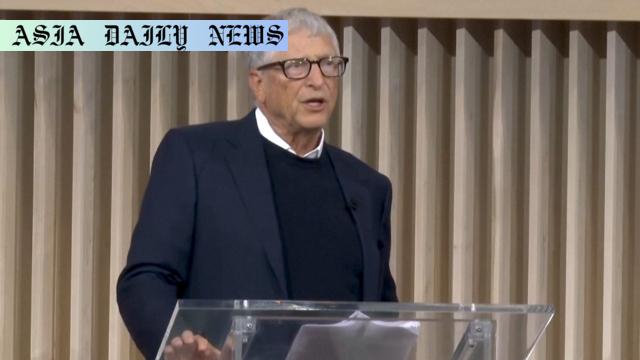Donation to save and improve lives: Bill Gates plans to donate $200 billion by 2045, focusing on health, poverty, and disease prevention.
- Donation pledge: Bill Gates plans to give away $200 billion by 2045.
- Funds to focus on global health, disease prevention, and poverty.
- Gates Foundation to double its past contributions within two decades.
- Countries cutting foreign aid pose challenges to global philanthropy.

Bill Gates Announces Groundbreaking $200 Billion Donation
Microsoft co-founder and renowned philanthropist Bill Gates has made headlines with a monumental pledge to give away the majority of his fortune by 2045. According to a statement released, Gates intends to donate over $200 billion, which will be channeled through the Bill & Melinda Gates Foundation over the next two decades. This unprecedented act of philanthropy aims to tackle some of the world’s most pressing challenges, including reducing maternal and child mortality, combating malnutrition, fighting infectious diseases, and addressing poverty on a global scale.
Addressing Global Health and Poverty
The primary focus of this initiative is to save and improve lives, with particular emphasis on reducing preventable deaths caused by malnutrition and disease. Over the past 25 years, the Gates Foundation has given away over $100 billion, and Gates has set a clear ambition to double this contribution in the coming 20 years. By 2045, when the foundation plans to wind up its operations, the cumulative donations will exceed $200 billion. Gates’ vision exemplifies his belief in using wealth for the greater good and giving back to humanity.
Challenges in a Shrinking Aid Budget
While the philanthropic move is remarkable, Gates cautions about the limitations of such efforts against a backdrop of budget cuts in foreign aid worldwide. Nations such as the United States, United Kingdom, and France have reduced their commitments to aid programs. Gates acknowledged that no single organization, not even one as substantial as the Gates Foundation, can fully bridge this gap. Speaking candidly, Gates admitted, “The need, of course, is far greater than what we can do. But we’ll be showing that we’re doing the most we can.”
A Legacy of Commitment to Humanity
Philanthropy has always been a cornerstone of Gates’ life post-Microsoft. By channeling his personal wealth into transformative global health and poverty initiatives, his efforts represent a long-term commitment to making the world a better place for future generations. The donation will also shine a light on systemic inequalities and inspire policymakers, governments, and private-sector leaders to work collaboratively to solve global challenges. Gates has assured that the foundation will remain active throughout the donation period, which concludes in 2045.
Impact on Future Generations
The planned $200 billion donation marks a significant step in redefining the role of wealth in society. Such large-scale philanthropy serves as a reminder of the impact individuals and organizations can have when financial resources are directed toward meaningful causes. Gates’ actions demonstrate the potential to transform lives, mitigate suffering, and inspire others to rethink the allocation of wealth. Through this initiative, Gates hopes to leave a lasting legacy of beneficial change in some of the world’s most vulnerable communities.



Commentary
The Power of Generosity and Leadership
Bill Gates’ commitment to donate $200 billion by the year 2045 is not just an act of profound kindness but also a demonstration of visionary leadership. In a world rife with inequality and suffering, his decision to use his vast wealth to tackle problems such as malnutrition, disease prevention, and poverty sets a powerful example. Gates is showing that wealth can and should be leveraged to uplift humanity. This move inspires individuals and organizations alike to think about the greater good rather than personal abundance.
Confronting Global Challenges
One aspect of Gates’ announcement that particularly stands out is his acknowledgment of the challenges posed by reduced foreign aid. His honesty about the limitations of private philanthropy reflects a mature understanding of systemic issues. Indeed, significant global problems require collective action from governments, businesses, and NGOs. Gates’ donations may alleviate some of these challenges, but his leadership also serves as a call to action for others to play their part in solving the world’s issues.
Leaving a Legacy That Matters
Bill Gates’ philanthropic pledge is a lesson in legacy-building. While some billionaires amass wealth for personal gain or family dynasties, Gates’ example proves that true fulfillment lies in giving back. The decision to donate such a considerable portion of his fortune will undoubtedly improve countless lives over the next two decades and beyond. By prioritizing health, education, and poverty alleviation, Gates is crafting a legacy that will resonate for generations to come.